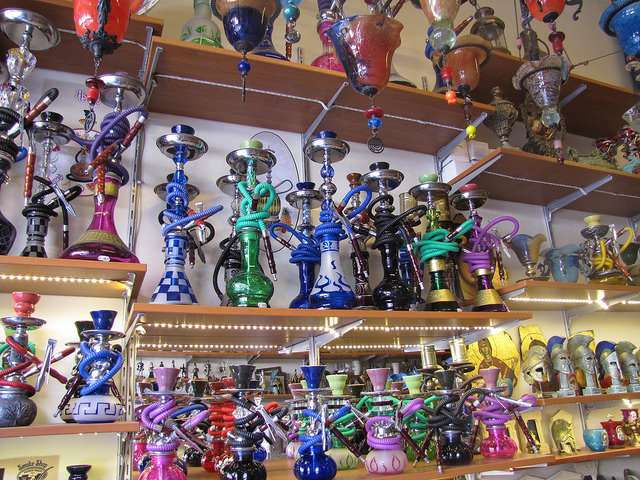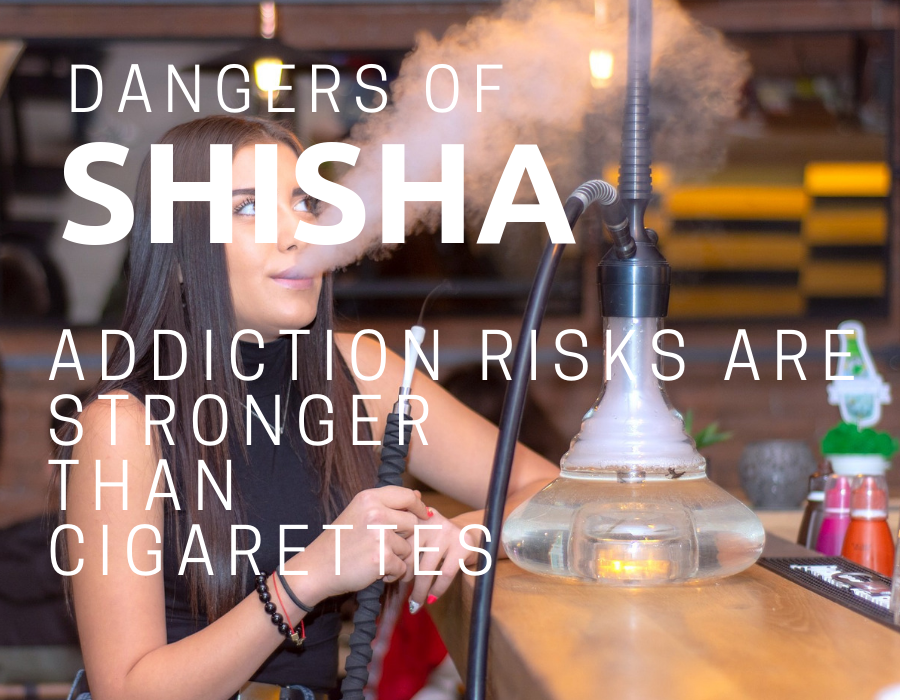The Shisha’s exotic appeal has turned it into a popular social ritual, especially among young adults. In recent years, shisha pipes have become more and more commonplace in restaurants and cafes throughout the world, including those of Europe and the British Isles. Aside from the novelty factor, shisha pipes have also peaked people’s interest as a “safe alternative” to cigarettes. Many vendors claim that shisha smoke is less harmful and less addictive. However, these claims are quite far from the truth. Studies have shown that shisha smoke poses the same health risks as cigarette smoking, and is actually more addictive than other forms of tobacco consumption.
Rehab Costs & Options for Alcohol | Drugs | Other addictions
What is Shisha?
Believed to have originated in ancient Persia or India several centuries ago, shisha pipes have a long history behind them. There are many names and slang terms for shisha pipes, including Hookah, Kalian, Hubble-Bubble, Nargilah and Water Pipe.
A shisha consists of a base container, which is filled with water, topped with a tray where the tobacco is placed, covered with a foil, and warmed by placing hot charcoal on top. The smoke from the heated tobacco is then cooled via the water-filled basin, then transferred to a flexible pipe, which is afterwards inhaled by the user through the mouthpiece.
One of the aspects that people enjoy is that tobacco consumed via shisha can be flavoured. This aspect is often criticised, as it removes the “smokey” taste, and leads people to believe what they are consuming is healthier than a cigarette. Some popular flavourings include mint or fruit with the most popular being apple flavour.
Aside from tobacco, the shisha pipe can also be utilised for smoking cannabis or opium.
A shisha smoking session lasts anywhere from 30 minutes to several hours, depending on how many people the shisha is shared by. However, it is estimated that a person using a shisha ends up smoking the equivalent of at least ten cigarettes in one session, an amount that is considered to be rather high, even for occasional use, and enough to develop an addiction.
Is Shisha a Safe Alternative to Cigarettes?
There is a limited research on the risks of shisha smoking, which may be the reason for the lack of information about its’ risks. Vendors often misinform their users that the smoke is “cleansed” because it is filtered through the water, but that is not true. People also label shisha pipes as a safe alternative because they believe that consuming tobacco via a shisha is less addictive.
Recent findings from many health agencies and the University of York, show that shisha as can be more addictive than cigarettes. Nicotine is present in almost all types of tobacco, and considered one of the most addictive drugs in the world. Furthermore, shishas often have higher concentrations of nicotine than cigarettes, and absorbed in larger amounts by the user due to the user’s greater exposure to the smoke.
According to the CDC (Centre for Disease Control and Prevention), a typical shisha user absorbs 90,000 mL of smoke in one session, compared to the 600 mL they would receive via a cigarette.
Despite the availability of low-nicotine and no-nicotine versions of shisha, these were found to be just as addictive as nicotine-rich versions. In addiction, carbon monoxide, present in all smokeable versions, including the nicotine-free blends, is very harmful to the human body.
Some risks associated with tobacco are Cancer, Lung Diseases and Fertility Issues.
Smoking tobacco via shisha, contrary to popular belief, also does not remove the toxic chemicals, including carcinogens, present in tobacco. Filtering the smoke via water does not remove the risky elements. Secondhand smoke from shisha, too, is equally as dangerous as secondhand smoke from cigarettes, which is often considered more harmful than smoking the cigarette itself.
Aside all that, shishas’ mouthpieces are also usually shared between other guests, which increases the risk of transferring diseases from one person to another.

Are Shishas Really Addictive?
Research from the University of York showed that common smoking-cessation methods do not work as efficiently on shisha users compared to cigarette smokers. Heavy users are often prescribed medicine to help them quit.
Varenicline is considered one of the most efficient methods in assisting with quitting smoking, by reducing cravings and lowering the pleasurable effects of tobacco consumption. A user prescribed varenicline is three-times more likely to quit compared to a person on a placebo.
Although considered a miracle drug of sorts, and one of the best options for users having a hard time quitting cigarettes, this medicine does not help those addicted to shisha nearly at all. In fact, in recent studies, the medicine’s effects on shisha users were no different to the placebo group.
What Are Some Signs of Shisha Addiction?
One of the major signs of addiction is developing a craving for the substance, or experiencing withdrawal symptoms when going without it. Shisha users exhibit both cravings and withdrawal, just like regular cigarette smokers, even if they don’t smoke shisha regularly.
Some common nicotine withdrawal symptoms are:
- Anxiety
- Irritability
- Cravings
- Depression
- Impairment of cognitive thinking or attention
- Increase in appetite
- Trouble sleeping
These symptoms can start within hours of a smoking session, peak after a few days, and last for months, depending on the user.
What Can Be Done to Reduce the Effects of Smoking Shisha?
As with any addiction, the best advice one can provide is not to start. However, Shisha smoking is still considered a social activity, and therefore can be hard to avoid, especially since it is becoming more common.
The study from the University of York, mentioned earlier, also discovered that 90% of shisha users only smoked with family or friends. In addiction, as noted before, even if one avoids smoking shisha firsthand when in a group, the secondhand smoke can be just as harmful, much like with cigarettes.
Peer pressure can be a major factor, especially if people are mislead to believe that what they are using is “safe”. If everyone is planning to order a shisha to the table, one may be persuaded to participate as well.
Many cafes and restaurants have now began to offer shisha pipes, without advertising the dangers of utilisation. Hence, some have suggested requiring warning ads as one option. Cigarette packs these days often have warning labels; a shisha menu at a dining venue does not.
Since shishas have become increasingly popular with young adults, targeting them with awareness-raising information can alleviate future damage. Young adults, especially those in the eastern Mediterranean region, now utilise shisha pipes more commonly than other forms of tobacco consumption. Furthermore, in specific regions, women are more likely to use shisha than cigarettes, possibly because they are led to believe it is safer.

Shisha is Not the Solution
Many medical researchers are concerned about the lack of information and hefty amounts of misinformation about shisha smoking. Because the effects of shisha smoking have not reached epidemic levels, there are not enough public announcements dedicated to it. However, that does not mean they don’t exist.
Shisha smoking is not safer than cigarettes, cigars, or any other form of tobacco consumption. Filtering the smoke through the water does not remove the carcinogenic and toxic chemicals from the tobacco. Furthermore, tobacco consumption via shisha pipes can be more addictive than other methods.
It is important to be aware of the dangers of consuming all addictive substances, as the aftereffects of addiction can negatively impact one’s life.
For more help and information regarding Shisha Addiction, you can contact us or request a call-back from a therapist.
Castle Craig is one of the most established and respected addiction rehab centres in the UK. Castle Craig provides consulting psychiatrists who diagnose associated mental illnesses like anxiety states, depression, ADD, PTSD, eating disorders, compulsive gambling, and compulsive relationships. For information, call our 24 hour free confidential phone-line: 01721 546 263. From outside the UK please call: +44 808 271 7500 (normal charges apply).


